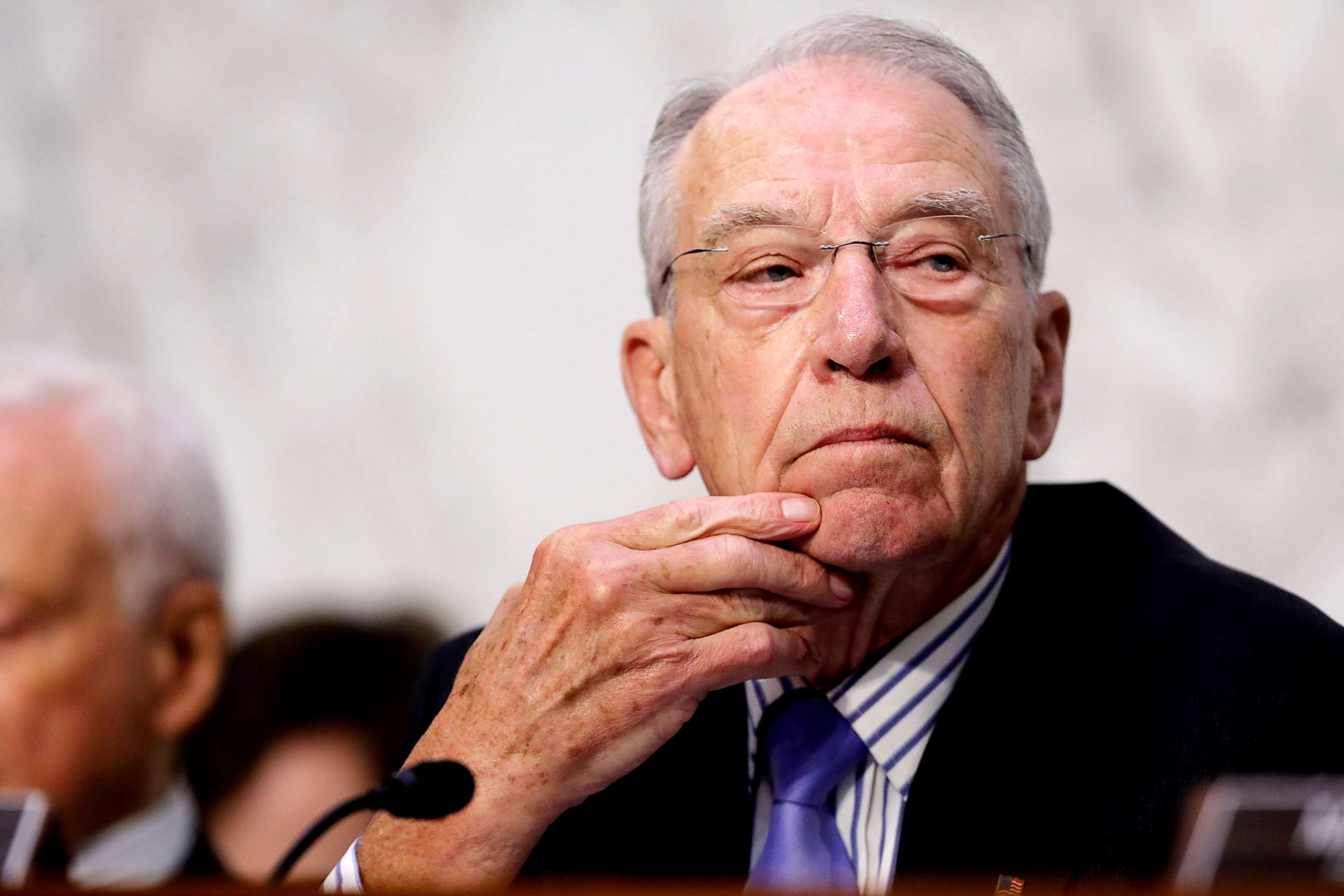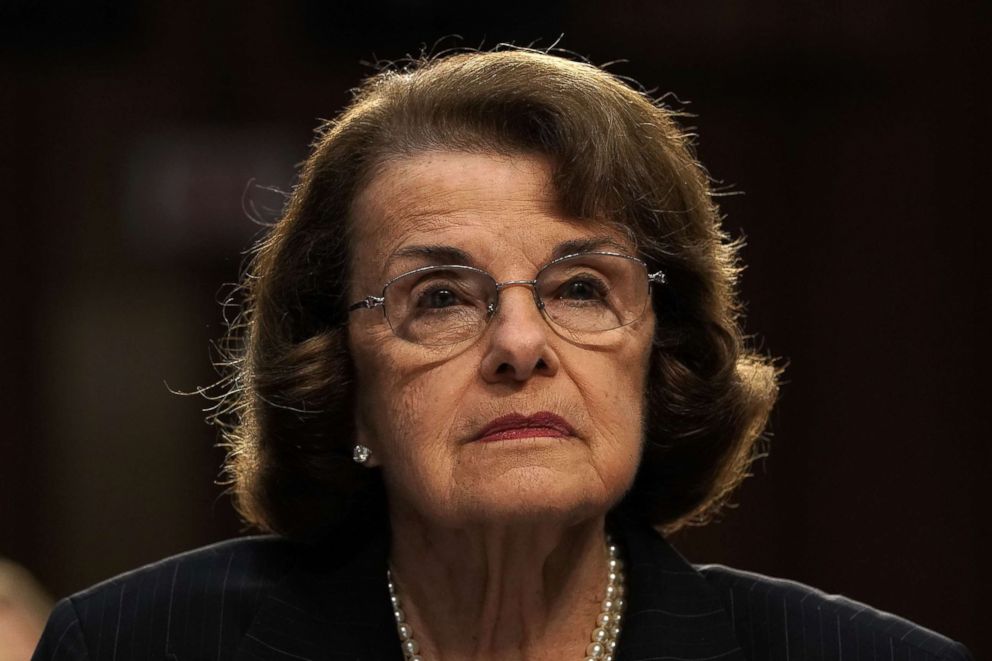The political stakes and risks in the Kavanaugh controversy: ANALYSIS
With midterm elections fast approaching, the political risks are high.
A senior White House official on Monday said the bombshell accusation of sexual assault against Supreme Court nominee Brett Kavanaugh was a political attempt to “torpedo” the judge’s confirmation.
Senate Democratic Leader Chuck Schumer, on the other end of the spectrum, said in a statement, “To railroad a vote now would be an insult to the women of America and the integrity of the Supreme Court.”
Take your pick of metaphors: either way, clearly Washington leaders agree that Kavanaugh's march towards a lifetime judicial appointment, which had been relatively smooth, is now in serious danger of getting beat up and potentially burned.
A vote in the Senate Judiciary Committee that had been scheduled for Thursday has been delayed. Instead, Kavanaugh and his accuser are set to testify at a public hearing next Monday -- under oath.
It is impossible to know how the politics of this will shake out, but no doubt the midterm elections, now just 50 days away, are on the minds of Republicans and Democrats alike as they try to decide what to do next.
The president seems to be OK with “a little delay,” and suggested to reporters Monday that he agrees with some congressional Republicans that there should be a “process.”

The president did not go as far as Republican Senate Judiciary Chairman Chuck Grassley, who wrote in a statement that Kavanaugh’s accuser, professor Christine Blasey Ford, “deserved” to be heard.
Perhaps that’s because Grassley knows that in this era, and in this political environment especially – forget the morality of it, just the brutal politics of it – Republicans have to be careful.
The GOP’s approval rating has been in a free-fall with women. Some of the biggest dips and hits to the president’s and party’s popularity have come from white, educated women, who seem to be turning their backs on Republicans.
According to ABC News/Washington Post polls, female support for generic Republican candidates over generic Democratic candidates has fallen nine points in the last two years. President Trump’s approval rating among women is at a low 30 percent.
Seeing an opening, some Democrats are surely wondering if they can delay votes on Kavanaugh’s nomination at least until after the midterm elections. While the idea of Democrats winning a majority of seats in the Senate still seems like a long shot, Schumer said on ‘The View’ Monday: “I think we have a very, very, very good chance of taking back the House, but here's the real surprise: We have a much better chance of taking back the Senate than anybody ever imagined.”
Six weeks before Election Day might seem like enough time to vet and process these allegations -- to give them respect, but then maybe move on -- but if this gets even uglier, it is hard to imagine those Republican candidates in tough campaign fights will want to stick around in Washington until November.
Analysts at ABC’s partner organization FiveThiryEight forecast that Democrats have a one-in-three chance of netting the three seats it would take for them to take control of the Senate.

Ironically, one of the Democrats in a tough race this fall is the Ranking Member of the Judiciary Committee, Sen. Dianne Feinstein of California. Her insurgent challenger back home – a progressive, Democratic state senator -- has blasted her since the beginning of the Supreme Court nomination process for playing too nice with this nominee.
Over the summer, Ford sent a letter to Feinstein, her U.S. senator, alleging in dramatic and chilling detail that years ago that Kavanaugh, as another young man watched, pinned her down, groped and assaulted her when they were teenagers at a party.
Speaking on ABC’s "Good Morning America," Ford’s lawyer described the moment as “attempted rape” in her client’s mind.
While Republicans are already pointing fingers of blame at Feinstein, the senior California senator could also face some real blowback from fellow Democrats for apparently sitting on this key letter from Ford.
Feinstein’s office said they were concerned with Ford’s privacy and that she did not want to be named.
How exactly Ford is able to give her story will be a topic of intense debate in the days to come: Does it need to be under oath, in person, in public?
Kavanaugh has issued blanket denials and also agreed to the idea of testifying again. Unless other witnesses come forward, it is hard to see how this does not end up a ‘he-said-she-said’ fight.
Then the questions are: Which of them do the senators believe and what is disqualifying for a post of this kind?
Maybe the politics should not matter.
With the #MeToo movement -- when so many women are finally, courageously feeling empowered enough to speak out about abuse and harassment, but likewise when some men have felt unfairly tried in the public eye and pressured to step down in the face of allegations without any recourse – maybe now someone should lead and talk of next steps in a way puts elections and vote totals out of mind.
Sadly, it is hard to see who that person would be.
And if it all seems crazy and head-spinning right now, remember that the Supreme Court fights have been that way for years. Senate Majority Leader Mitch McConnell refused to bring up President Obama’s nominee for a vote at all and went “nuclear” to change the rules and lower the threshold for picks under a Republican president.




